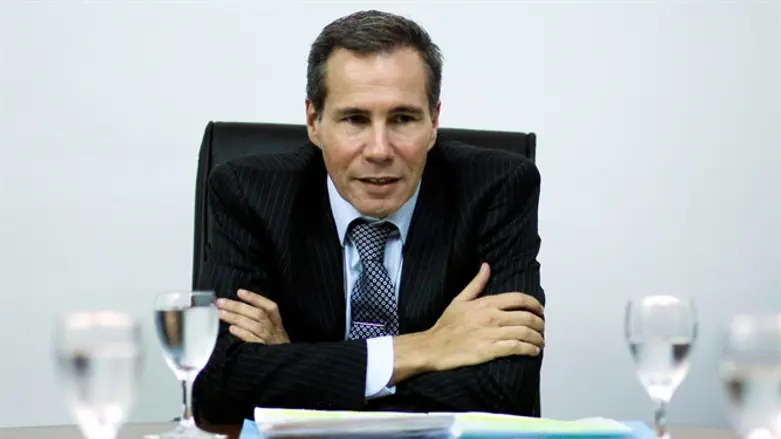
A federal judge in Argentina ruled on Tuesday that Alberto Nisman, the Argentine prosecutor who was found dead days after accusing former President Cristina Kirchner of covering up Iran’s role in the 1994 bombing of a Jewish community center, was murdered and did not commit suicide.
In a 656-page ruling quoted by Reuters, Judge Julian Ercolini said there was sufficient proof to conclude that the shot to the head that killed Nisman in January 2015 was not self-inflicted.
The ruling marks the first time any judge has said the case was a murder.
Nisman, who was Jewish, was found dead from a gunshot wound in his apartment in January 2015, the day before he was supposed to present a report on the 1992 AMIA Jewish center bombing to Argentine lawmakers.
It has been revealed that Nisman had drafted arrest warrants for Kirchner and then-Foreign Minister Hector Timerman before he was found dead.
Those warrants charged that Kirchner orchestrated a secret deal to cover up Iranian officials' alleged role in the attack. She denies the allegations.
Previous scientific tests showed that Nisman likely did not shoot himself, but the case languished until last year, when it was moved to a federal court that handles political murder cases.
After Nisman's death was initially labelled a suicide, his family – who insists he was murdered – commissioned its own independent forensic investigation.
“Nisman’s death could not have been a suicide,” Ercolini wrote in Tuesday’s ruling, which also charged Diego Lagomarsino, a former employee of Nisman‘s, with accessory to murder.
Lagomarsino has acknowledged lending Nisman the gun that killed him the day before he was to appear before Congress to detail his allegation against Fernandez. He has said Nisman asked him for the gun to protect himself and his family.
Kirchner is facing accusations of treason and plotting a cover-up for signing a 2012 pact with Iran that would have allowed senior Iranian officials accused in the deadly attack to be investigated in their own country, rather than in Argentina.
In early 2013, Argentina's congress approved, at the request of the executive branch, an agreement with Tehran to form a truth commission to investigate the bombing.
Leaders of Argentina's Jewish community, which at 300,000 people is the largest in Latin America, criticized the accord. An Argentine court in 2014 declared the agreement to be unconstitutional.
